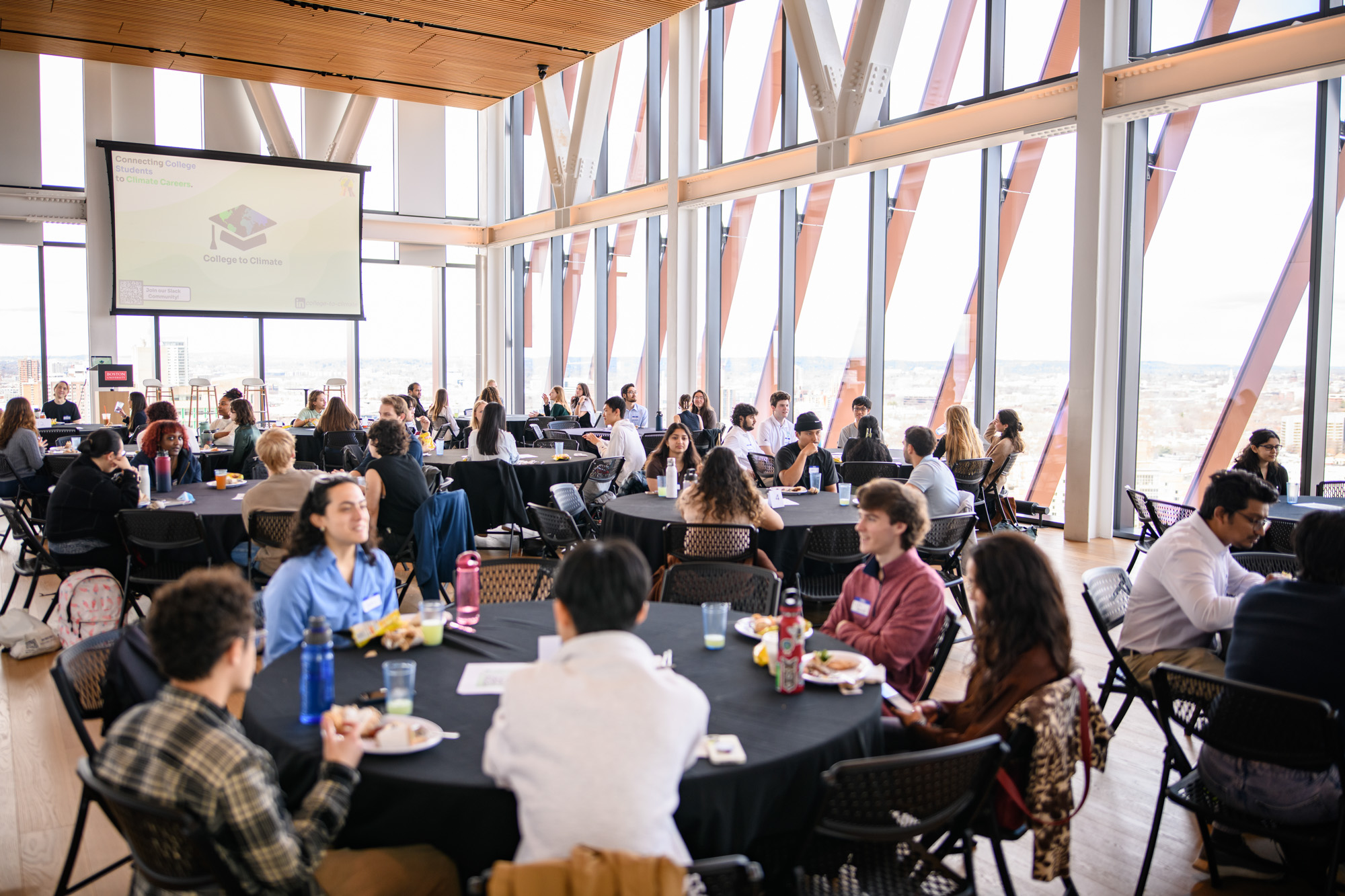Kailei Wedge, a senior at the University of New Hampshire studying environmental conservation and sustainability, said when she first found out waste from her hometown was going to a primarily low-income community, she couldn’t stop thinking about it. From then on, she said she has been focused on waste disposal management so that low-income communities do not have to face disproportionate impacts from waste management.
“My primary goal is just to make an impact on a business or processes, and [make] them more sustainable,” Wedge said.

With the rapid growth of the green economy, there are projected to be thousands of job openings for young people like Wedge who want to be a part of the sustainable movement.
But for many students, it can be difficult to find a job right after college graduation.
“I would love to have a job,” Wedge said. “Even just an internship would be cool, but I’m really trying to narrow down what I want to do because I’m interested in so many things.”
On Saturday, BU Sustainability partnered with the College to Climate team to host the College to Climate Symposium, making its debut with lush views from the 17th-floor of the BU Faculty of Computing and Data Sciences.
The event included a panel discussion with veterans in the climate industry and a career fair.
Co-founded by Casey Goldstein, Larsen Burack, Jessica Harrington and Caitlyn McCloskey, College to Climate began in a start-up accelerator program in December and has since grown to include more than 1,000 students around the world and dozens of in person and virtual events, Burack said.
The 13 businesses represented at the symposium included Greener U, a sustainability consulting firm and an early stage startup called Revvit, which develops low-cost electric vehicle chargers, as well as panelists from clean energy companies like Vineyard Wind.
“We did outreach to all companies like Greentown Labs, all climate adjacent companies … that we thought could benefit from coming and meeting a bunch of hungry students that are trying to get into climate,” Burack said.
Panel discussions at the Symposium discussed the projected growth of opportunities in the climate field and how young people can navigate trying to identify the right company for them.
The panelists explained that the industry was anticipating an increase of new development and opportunities related to climate due to the 2022 Inflation Reduction Act, which included major investments into sustainable energy and programs.
Portia Lee, a senior in the College of Arts and Sciences at BU said they were particularly interested in hearing from Hessann Farooqi, the executive director of Boston Climate Action Network, who was the moderator for the panel.
“It’s really inspirational to see a person of color in that [role],” Lee said.
Lee, who is interested in working in community organizing around environmental justice, said diversity in the environmental field is a frequent problem.
Lee said they hope to one day create “a space for people of color to exist in climate, especially environmentalism.”
But finding diversity in the environmental field isn’t their only challenge. Lee said they have applied for jobs since December, and has had eight interviews for temporary internships over the summer.
“I think [Boston University does] a good job of sending out information, but I think there’s a lot of opportunities in Boston that are not known because it’s so massive,” Lee said.
Every climate company runs like any other business, Burack said. They are looking to hire salespeople, accountants and communications professionals in addition to people who are specialized in climate and environment.
“We want to do a lot more of connecting students directly to the roles, and then we want to empower career offices and other faculty departments in the university to be able to connect students to those roles,” Burack said.
When it comes to what’s next for the organization, Burack said he wants to continue to work with institutions to get students jobs and continue to build student engagement.
“Trying to find an entry-level role has been a bit difficult, especially in what I want to do,” Wedge said. “But I’m hoping that somewhere they’ll be able to educate me on that in the job.”



























































































































Jay • Apr 17, 2024 at 9:25 pm
Awesome article